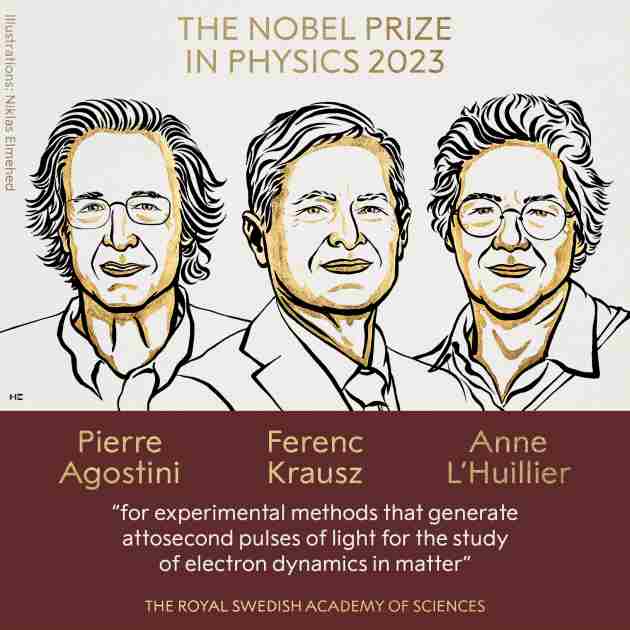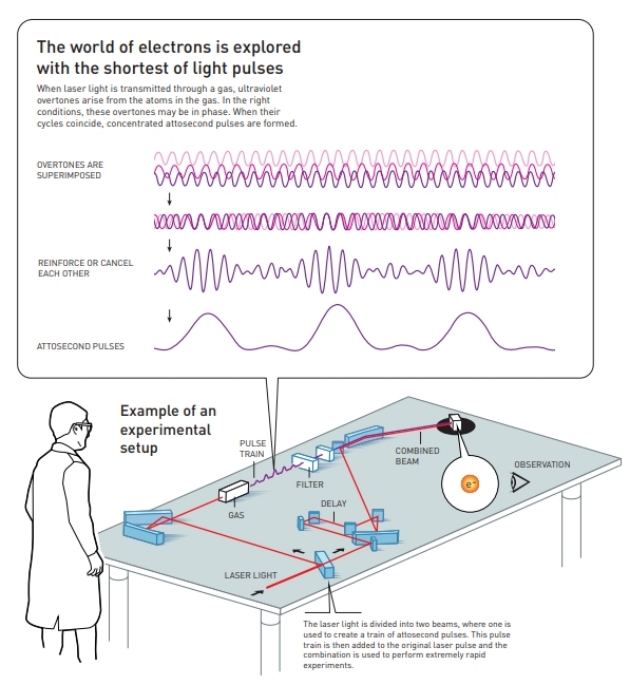2023 the Nobel Prize in Physics

The Institute of Physics and IOP Publishing congratulate Pierre Agostini (The Ohio State University, USA), Ferenc Krausz (Max Planck Institute of Quantum Options, Garching and Ludwig-Maximilians-Universität München, Germany) and Anne L’Huillier (Lund University, Sweden) for winning the 2023 Nobel Prize in Physics “for experimental methods that generate attosecond pulses of light for the study of electron dynamics in matter”.
The laureates’ experiments produced pulses of light so short that they are measured in attoseconds and used them to study extraordinarily rapid processes inside atoms and molecules: from the behaviour of electrons in solid matter, to how molecules change during chemical reactions. This has provided new insights on the world of electrons, and highlighted the potential for utilising them in new ways.
Speaking at today’s press conference, Eva Olsson, Chair of the Nobel Committee for Physics, said: “We can now open the door to the world of electrons. Attosecond physics gives us the opportunity to understand mechanisms that are governed by electrons. The next step will be utilising them.”
IOP President Professor Sir Keith Burnett said today: “Many congratulations to each of the winners whose work has been instrumental in developing new tools that allow us to probe deeper into the fundamental processes of nature at the attosecond scale – and uncover new insights.

“Particular congratulations to Anne L’Huillier as the fifth woman to be awarded the Nobel Prize in Physics. I’m delighted to see colleagues honoured in this way. Fundamental tools like this are the foundations for future applications and physics-powered innovation.”
Miriam Maus, Chief Publishing Officer at IOP Publishing, added: “Congratulations to Pierre Agostini, Ferenc Krausz and Anne L’Huillier whose phenomenal work on electrons in flashes of light has led to this year’s Nobel Prize in Physics. We are immensely proud to have published some of their research and to have been a part of their journey in sharing this knowledge with the world.”
The prize money of £820,000 (11 million Swedish kronor) will be shared equally between the winners.
Please specify source if reproduced2023 the Nobel Prize in Physics | SCISOON

